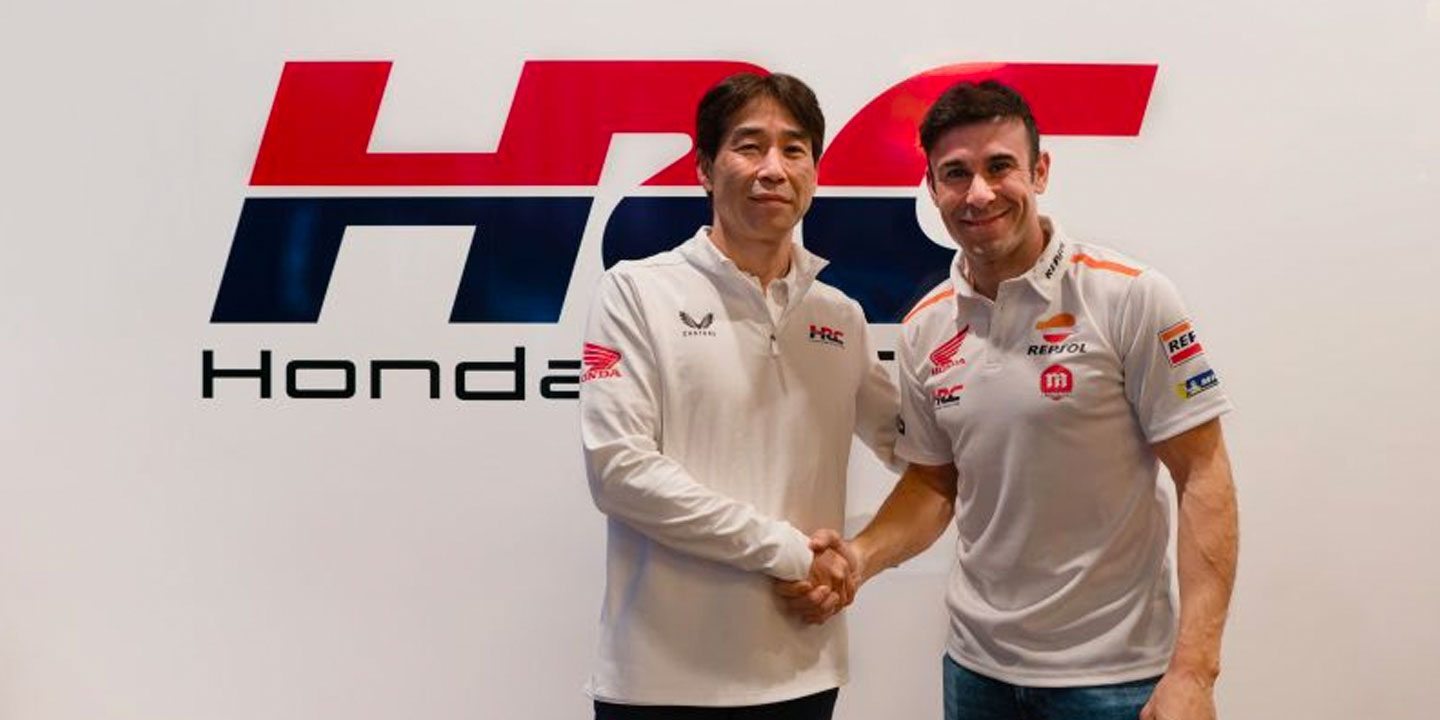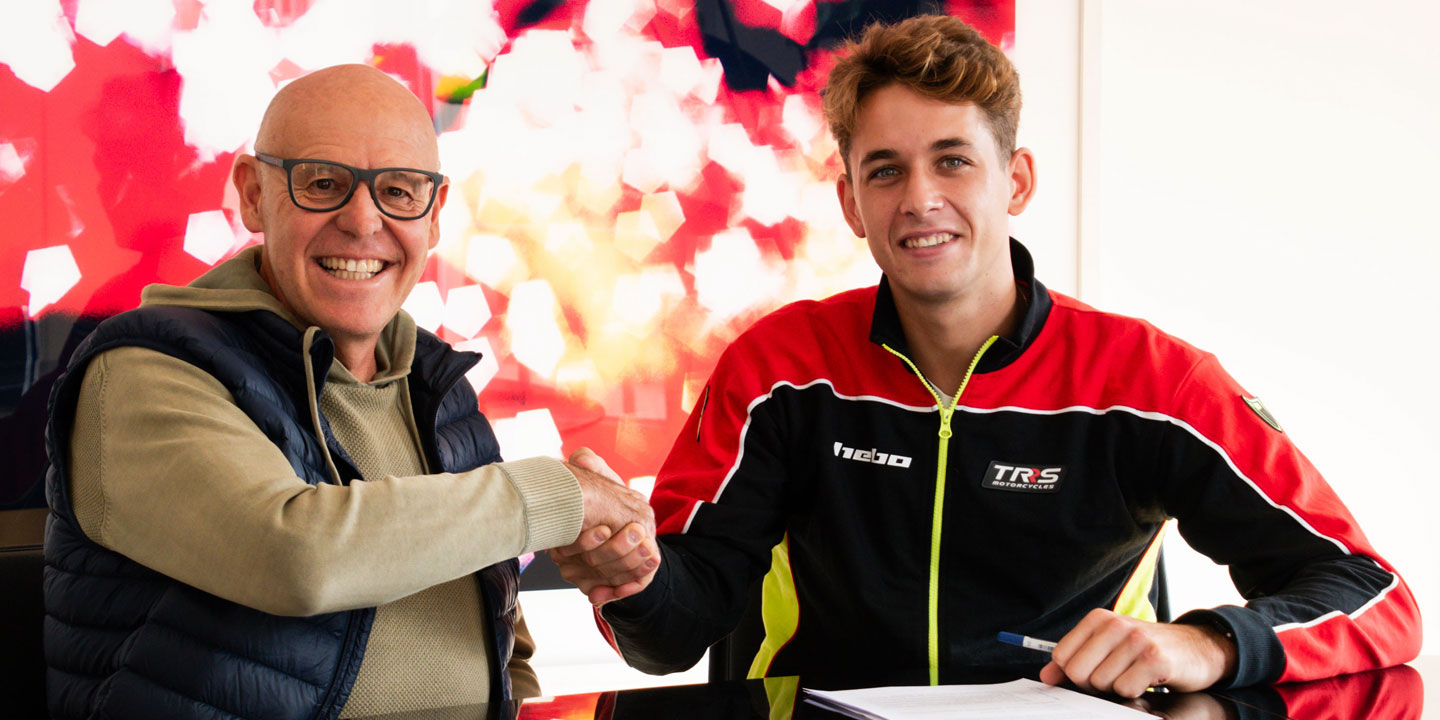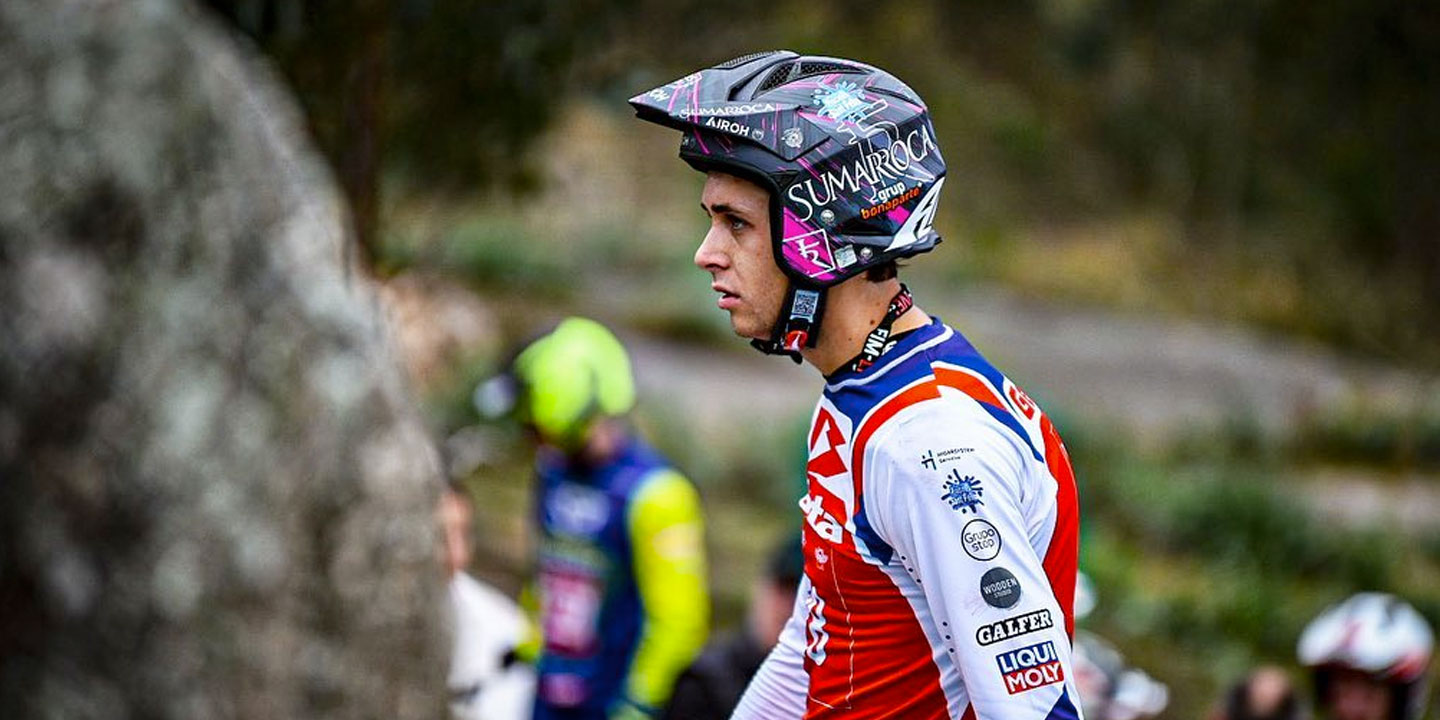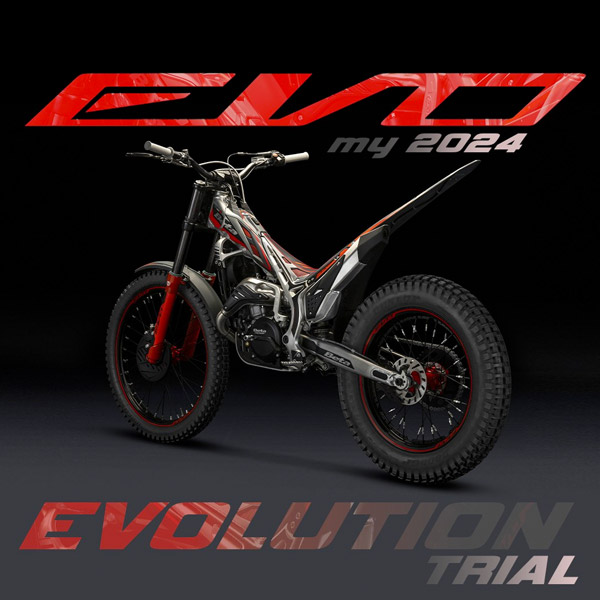The RFME Trial Delegate and Team Manager of the RFME SPEA team, Jorge Prat, tells us some questions about the 2016 season and answers some questions about the SPEA RFME Spanish Trial Championship in an interview conducted and published by the RFME.
– Last season the RFME carried more riders than ever under its colours at international level. Will the two official teams also remain in 2016?
We will maintain a men’s and a women’s national team. We’ll see which championship we sign up for, as we have doubts about whether or not to continue in the World Championship.
– With the same riders and in the same competitions?
The drivers are yet to be decided, but we will always keep in mind the 2015 baseline. The issue of competitions is more complicated to answer. In the WTC we find a different regulation to the one we have in Spain with all that this means: different training, different mentality, more pressure, lower level, etc. In addition, our young pilots have few exits. There are a lot of Spanish drivers in the WTC and that means that they have fewer opportunities to find a professional path against other drivers of different nationalities. Without going any further, they do not have access to the X-Trial World Championship (World Indoor) because of nationality, and doors are closed to them that due to their level and position in the WTC they should have. This makes us rethink whether the path we follow with the teams is the right one or whether we have to look for an alternative. The European could be a good option, but the regulations are the same as in the WTC. It is shocking that the NON STOP championships are the FIM and the FIM-Europe. The rest of the countries continue with the format that allows us to stop, with the exception of Great Britain, which does not change its tradition. There are few options to choose from internationally, unless we are able to create something different.
– Why are appointments discounted in all categories of the SPEA RFME CET except TR1?
TR1’s CET is conditioned by the X-Trial World Championship, the WTC and other international calendars. This means that we can compete in a specific number of races, but that should not affect the rest of the categories more than is inevitable. Our idea is to hold a CET test every month if possible. In this way, non-World Championship riders remain active for a large part of the year. Logically, this entails travelling throughout Spain, with the corresponding economic cost. That is why we discard 2 or 3 races so that these riders can choose where it suits them or they can participate without losing all the options to get a good place in the final classification of the championship.
– Why is it allowed to stop at the National when you don’t at the World Cup?
The FIM decided, some time ago, to switch to a Non Stop regulation. A regulation that was not approved by the FIM trial commission on two occasions and that was decided, in the end, by decree law. It is basically the same thing that was already attempted at the beginning of 2000 and which was rejected because of the difficulty involved in applying the regulation, as well as the constant problems with the judges and the differences of opinion in the application of the regulation that led to the failure of that idea. As RFME we decided to wait and see how it worked and if it was really a success, and from there we would make a decision. At the moment, we believe that it has not done so. It’s not a success. In addition, it must be taken into account that in the National Championships the riders are usually from the end of the 20th century or the beginning of the 21st, so most of them do not think that the NON STOP issue is their sport, trial. But that’s not all. At the CET we think that we need to simplify the regulations, their application by the judges and the understanding of the drivers. In short, we are going in the opposite direction to the FIM criteria.
– Since 2012 the Spanish Indoor Trial Championship has not been held. Is the RFME working to recover it?
Very difficult and complicated subject. Mainly on the economic side. We would like to relaunch the CETI for young riders, so that they can forge themselves and at the same time, earn some money. I have thought, at some point, of sacrificing the international season and allocating those resources to a CETI to 6-8 races with prizes for young riders. It should be noted that riders such as Jorge Casales, Jaime Busto, Pol Tarrés and others finish their international season in September. They do not have access to the X-Trial World Championship because they are Spanish. And that’s despite the fact that due to their position in the WTC they are better placed than the rest of the non-Spanish riders who participate in the X-trial. In other words, the door is closed to them to earn some money, in addition to the time they are without competition. It doesn’t seem that the issue worries the FIM too much, which by regulating against Spanish riders, puts an end to the problem. Or at least that’s what it seems to me. With this in mind, the idea of a CETI with 8 rounds and prizes of at least 1000 euros for the last and 1500-2000 for the winner would be perfect for these riders. Unfortunately, we cannot do without the international season and therefore we must look for additional resources for this idea. It’s very difficult, but it’s not out of the question.
– Last season the RFME carried more riders than ever under its colours at international level: one, in World Pro; four, in the World Cup; and six girls at the Women’s World Cup…
It is true that the RFME made a great effort to bring so many pilots. The situation was complicated for some and I think the Federation responded as it should. The situation of Gas Gas and its riders led us, for example, to have to help Arnau Farré throughout the year and Adam Raga in the first three rounds of the WTC (World Trial Championship) in Europe. Also during the season we helped Gabriel Giró as much as possible, in the Youth Cup 125cc. Bringing six riders in the women’s team responds only to RFME’s strategy of always having high-level replacements. We are in a situation of having a young team, with Sandra Gómez, Mireia Conde and Elisabet Solera, and their possible replacement, with María Giró, Berta Abellán and Neus Murcia. In practice, things have been rushed and there is no relay, but there is a team of 6 riders; all of a very high level.
– The World Cup title slipped away at the last moment and in the tiebreak. But up to three riders of the RFME SPEA team in that category had a chance to win the title until the last Grand Prix of the season.
It was an atypical season. Normally the victories are shared between 2 or 3 drivers and from there the winner emerges. 2015 was very uneven and there were many riders with all the options in the world until practically the last round. Unfortunately, the title slipped away at the last moment, but I’m happy with the season of the whole team in general.
– The SPEA RFME Spanish Trial Championship 2015 had a total of ten races. In fact, in the last five years, the top national competition has doubled its appointments.
We have to thank the motorcycle clubs for the enormous effort they make to organize CET events. In recent years we have tried to make the organisation a little less complicated for the clubs, and with everyone’s help we are getting out of the organisational crisis. The idea of separating the TR1 category into a race makes it seem easier to organise the trial, and I think it encourages the club to apply for the race.
– Some events, such as El Condado (Asturias), Lozoyuela (Madrid) or Baiona (Pontevedra) shared dates and scenarios with regional events. Why?
Obvious. It’s getting harder and harder to organize events. Therefore, it is logical to try to get the most out of that effort. Normally we share championships when the TR1 category is not there or some categories are disputed on Saturday with the regional one. We consider quite a few factors before authorizing a shared test, but when we do, it’s usually a success. Only in one case did we have problems, which will not happen again.
– For a couple of seasons you have been visiting Andorra, could the SPEA RFME Spanish Trial Championship hold races in Portugal, France or Italy in the future?
It’s difficult, but not impossible. If we’re close to being able to do anything, it’s with Italy. The idea would be to be able to do one or two tests in Italy and then the Italians would come to one or two events in Spain. We would have to see with which categories and how we help the participation of the drivers. It’s a challenge that I have in mind, that I’m thinking about, and I don’t rule it out for the future. If this worked, we would see if it is possible to expand it to more countries.
– Veteran and Female C were the new categories launched in 2015. Assessment?
The two categories need some time to establish themselves. The idea of the RFME is that no one is left out of participating in the TEC. Until now, veterans were inside the TR4. But time goes by and we think it’s necessary to lower the level of zones a bit for the older riders. As for the women, after a few years of championship, we had the A Women, all World Cup players, and the B women, with a more than acceptable level. This meant that, for the uninitiated, access to the CET was too difficult. With the Women’s C category, access is easier and the proof is that, for example, Carla Caballé participated in her first trial, to be tested, and in the end she has continued the entire championship to end up winning the category.
Interview: RFME
Photography: Joan Carles Vázquez
Inicio / RFME interview with Jordi Prat: “I’ve even thought about sacrificing the international season to relaunch the national indoor season”
RFME interview with Jordi Prat: “I’ve even thought about sacrificing the international season to relaunch the national indoor season”
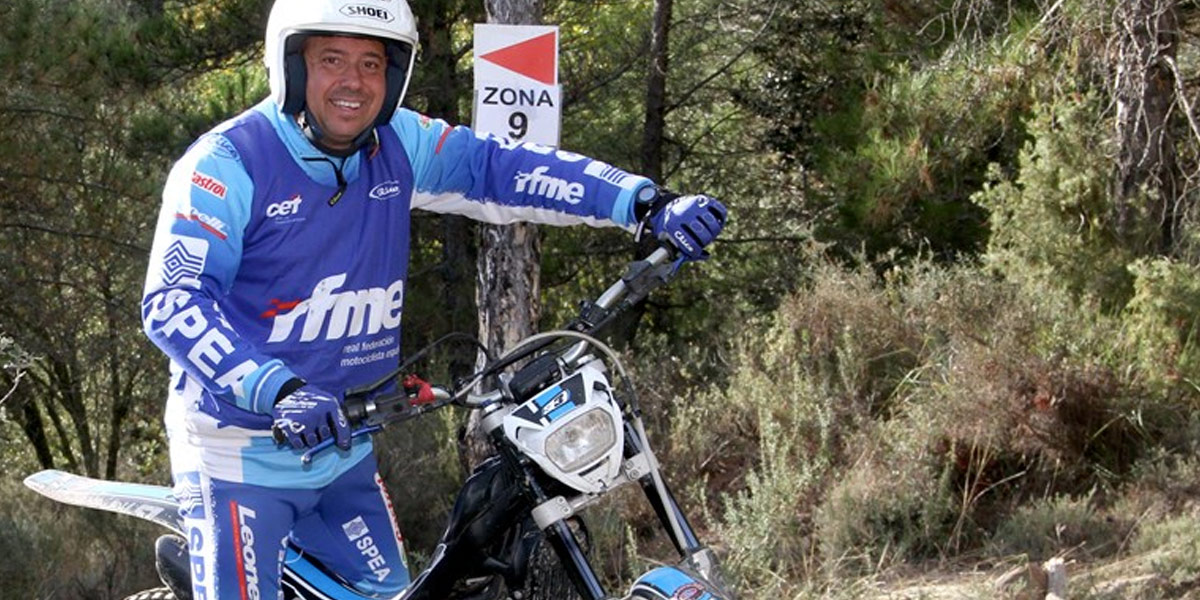
- 22/02/2016
- Trialworld
Did you like it? Share
Share on facebook
Share on twitter
Share on pinterest
Share on whatsapp
Share on email
